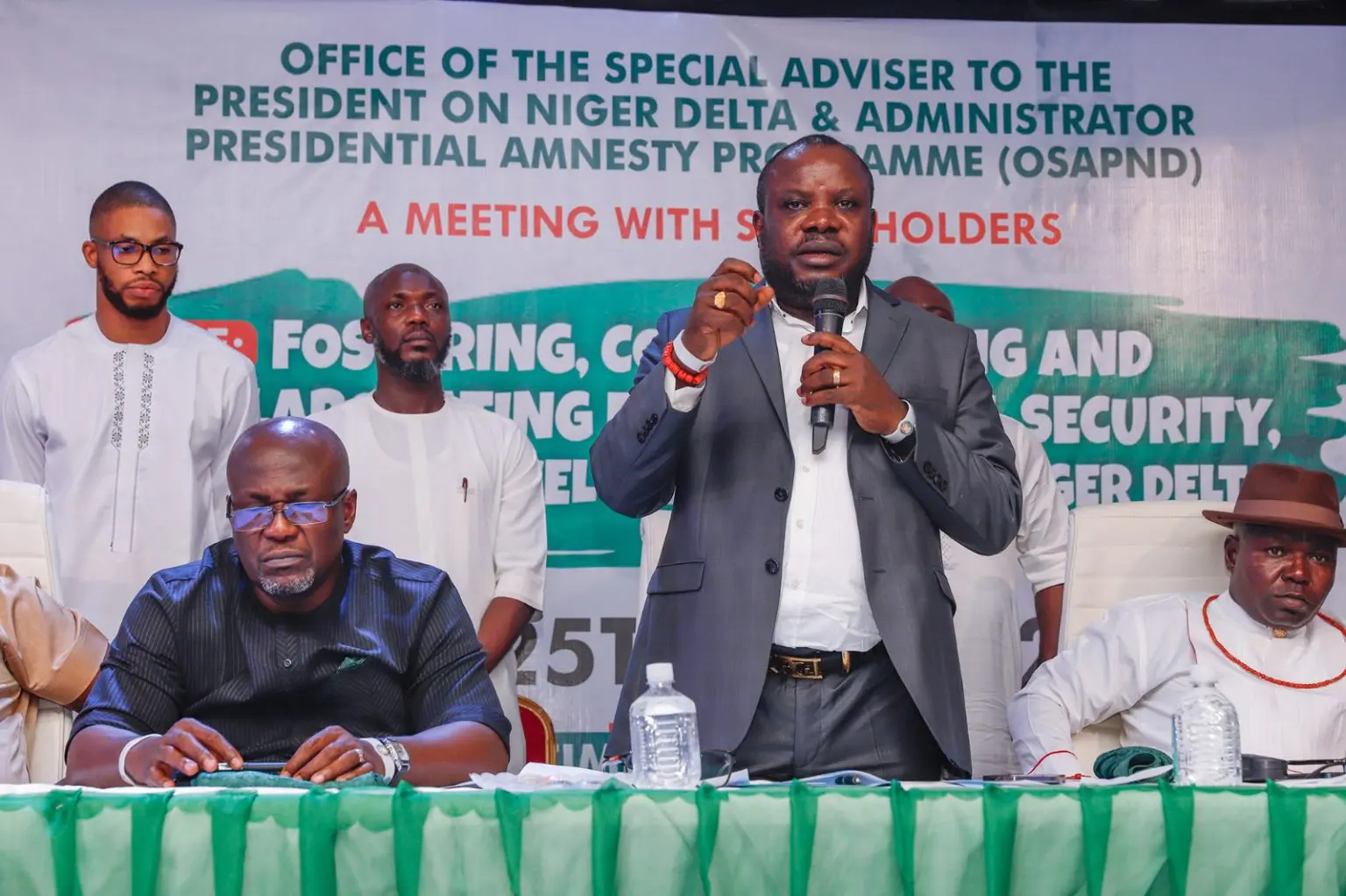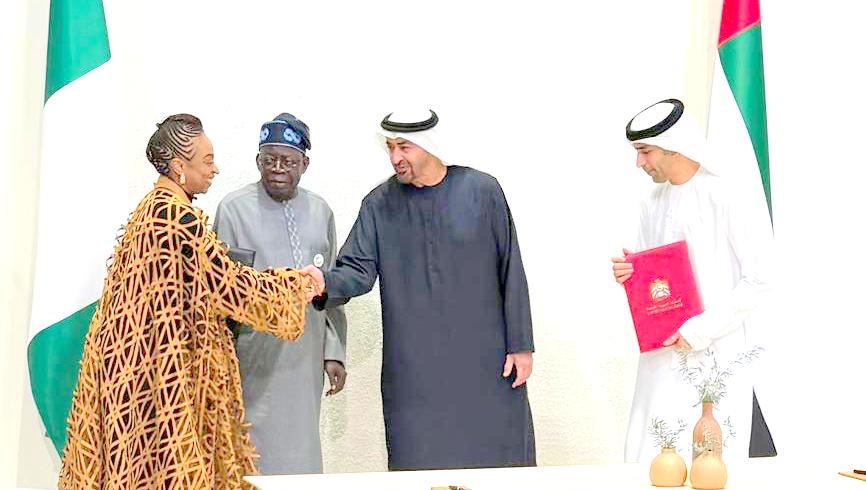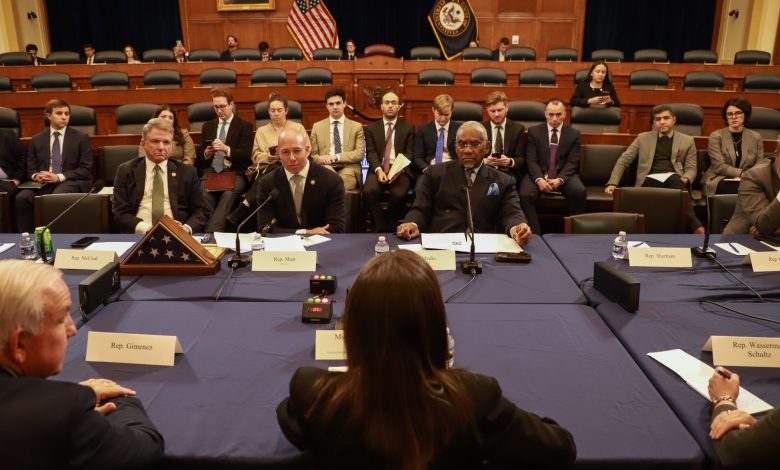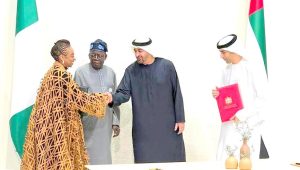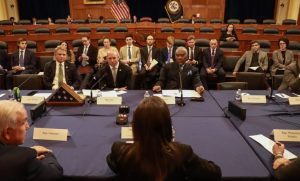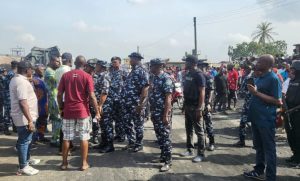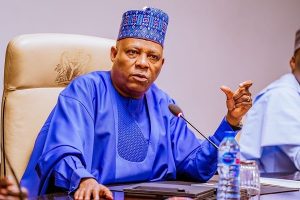Avoid actions that can destabilize Niger Delta — Otuaro tells ex-agitators
The Administrator of the Presidential Amnesty Programme, PAP, Dennis Otuaro, has urged ex-agitators enrolled in the programme to avoid any action that could undermine peace and security in the Niger Delta.
Otuaro urged them to promote peace and security in the oil rich region, emphasizing the importance of avoiding actions that could subvert the objectives of the PAP.
The administrator made this charge at a stakeholders’ meeting with former agitators in Warri, Delta State, on Saturday, with the theme, ‘Fostering, Consolidating, and Collaborating for the Peace, Security, Stability, and Development of the Niger Delta’.
The Special Assistant on Media, Igoniko Oduma said in a statement on Sunday that participants at the meeting included leaders from all phases of the Presidential Amnesty Programme.
Otuaro stressed that all stakeholders in the region must work towards this goal and consolidate the success of the Amnesty Programme to prevent the Niger Delta from relapsing into the pre-amnesty years of serious conflicts and violence, which negatively impacted the region and the country.
“Sustaining the peace and security of the Niger Delta is the mandate of the Amnesty Programme, and we must do this for our communities, our children, and their children,” Otuaro said.
The Presidential Amnesty Programme was established in 2009 to disarm, demobilize, and reintegrate former Niger Delta agitators. The first two phases of the programme have been completed, with the Amnesty Office now tasked with the reintegration of former agitators into the society and providing institutional support for impacted communities in the Niger Delta.
Otuaro stated that the PAP was an opportunity for the people of the region which, if well leveraged, could help to resolve some of the challenges of the Niger Delta, especially human capital development.
He urged the stakeholders not to worry, as he had assurances from President Asiwaju Bola Ahmed Tinubu that the Federal Government would prioritize the development of the Niger Delta.
“The President is very serious about the peace and security of the Niger Delta region,” he said.
Otuaro affirmed that despite its lean budget, the PAP has made significant achievements. “Many delegates and beneficiaries from our impacted communities have received quality training and high-level manpower skills in diverse fields of human endeavours,” he stated.
“Today, several are gainfully employed as air traffic controllers, flight instructors, aircraft maintenance engineers, pilots, and underwater welders.”
He added, “Others have also been trained and empowered through the Programme and are doing very well in various trades such as fashion design, unisex salon, fish farming, baking and confectionery, rice production, hairdressing, cement, and building materials.
“In addition, several PAP scholarship students have made First Class and Second Class Upper in different courses of study, including Medical and Clinical Sciences, in universities at home and abroad. My leadership is committed to sustaining this trajectory of academic excellence, which is being applauded by well-meaning individuals and organizations across the region and indeed the country.”
Otuaro pledged to enhance the Amnesty Office’s operations to make it more responsive to stakeholders’ needs, promising regular meetings to get valuable feedback from delegates and respond swiftly to complaints.
He explained the need to make the Amnesty Programme more effective in achieving its mandate prompted him to host the stakeholders’ meeting.
Many of the delegates at the event commended the Administrator of the Amnesty Programme for the initiative while raising concerns about some aspects of the programme.
Also Read: NDDC Launches 2024 Free Medical Mission Across Niger Delta States
The major complaints centred around financial difficulties, with most arguing that the N65,000 stipend had become too meagre to meet their basic needs and should be reviewed.
According to Gilbert Isobe, an ex-agitator from Bayelsa, “When we started receiving the N65,000 in 2009, the money was sufficient, but after 15 years, it cannot take care of anything now. We, therefore, plead with the Federal Government to increase the budget of the Amnesty Programme so that the stipends can be increased to at least N150,000.”
